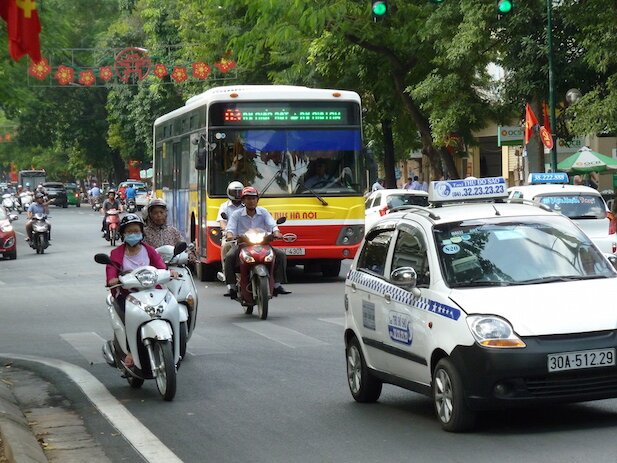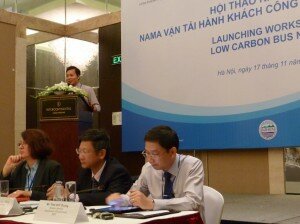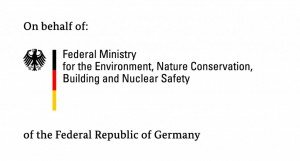
The GIZ project “Creation of an Overarching Framework for NAMAs and MRV in Vietnam”, in collaboration with UNDP, is supporting the Vietnamese government in developing an urban transport NAMA. As highlighted by the representatives of the Ministries of Environment and Transport at the Low-carbon bus NAMA launching workshop on November 17, 2015, in Hanoi, this NAMA supports Vietnam’s INDC and several existing strategies and policies. It also was one of the top options identified in a Transport-NAMA identification and selection process carried out by the TCC project in 2014.
The NAMA aims to contribute to sustainable development in the transport sector and to materialise GHG reduction potentials through:
- utilisation of more efficient bus technologies,
- increase of bus occupancy rates and
- shift from private transport to public transport (including avoided future shift from 2W to cars)

The initial concept includes three components:
- National Urban Transport Policy
- Planning for high-quality bus service in cities
- Bus technology improvement
Key issues from the workshop include the need for detailed boarding/alighting surveys, projecting feasible public transport modal share, feasibility of (avoided) modal shift, key policy measures, financial resources for purchasing new buses, integration of bus-related activities of international organisations, and the role of international support.
Over the next months, a consultancy team will support GIZ, UNDP and the Vietnamese government in elaborating a detailed NAMA proposal.






